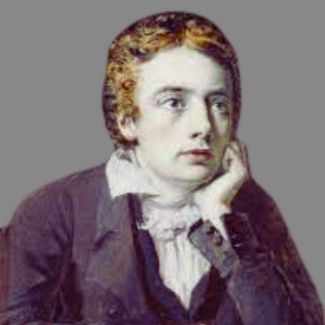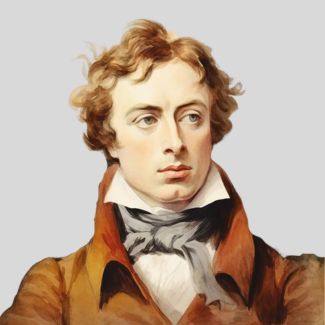Introduction
In the annals of literary history, few figures are as iconic and enigmatic as John Keats. A name that resonates through the ages, Keats was a poet of unparalleled passion and a life tragically cut short. In this comprehensive exploration, we delve into the remarkable tale of John Keats, a literary genius whose legacy endures through his timeless poetry.
Early Life and Education
In 1795, the poet John Keats was born in Moorgate, London. His parents, Thomas Keats and Frances Jennings, struggled with financial hardship, profoundly impacting young John’s early life. Keats ‘ mother remarried after his father’s untimely death, but the family’s financial difficulties persisted. Despite these challenges, Keats displayed an early aptitude for literature and embarked on a remarkable journey of self-education.
Keats attended the Clarke School in Enfield and then trained as an apothecary at Guy’s Hospital in London. His medical training not only provided him with a deeper understanding of the human condition but also exposed him to the suffering of patients, which would later influence his poetic themes.
A Budding Poet
John Keats’ journey as a budding poet was nothing short of extraordinary. His introduction to the world of literature through Leigh Hunt marked a turning point in his life. Hunt recognized Keats’ immense potential and provided crucial mentorship, guiding him toward poetic greatness.
In 1816, at the tender age of 21, Keats published his first poem, “O Solitude,” and thus began his ascent in the world of poetry. This early work displayed remarkable promise and was a mere glimpse of the poetic genius to come.
Over the next few years, Keats produced a body of work that included some of the most celebrated poems in the English language. His extraordinary sonnet, “On First Looking into Chapman’s Homer,” is a testament to his early genius, capturing the excitement of a young poet discovering the works of another literary giant.
Keats’ journey as a budding poet was marked by the passion and enthusiasm that would define his entire career, leaving an indelible mark on the world of literature.
A Life of Love and Loss
John Keats’ life was deeply intertwined with themes of love and loss, a poignant narrative that found its expression in his poetry.
Passionate Love:
Keats’ passionate love affair with Fanny Brawne was the central emotional anchor of his life. Their intense relationship is evident in Keats’ letters, filled with affection and longing.
Muse for His Poetry:
Fanny was not just the love of Keats’ life; she was his muse. Their love inspired some of his most renowned works, including the romantic and sensual “Bright Star,” a poem that immortalizes their love.
Sorrow and Suffering:
The tragedy was never far from Keats’ life. He witnessed his brother Tom’s battle with tuberculosis, a disease that would later claim his own life. Keats’ poem “To Autumn” reflects his deep sorrow and a growing awareness of life’s transience.
The Strain of Separation:
When Keats embarked on a journey to Italy hoping to regain his health, he left behind his beloved Fanny. The physical separation added to his emotional torment.
John Keats’ life was a testament to the profound connection between love and loss. His exploration of these themes in his poetry continues to resonate with readers, making him not only a poet of great talent but also a poet of the heart.
The Odes and Literary Legacy
John Keats’ oeuvre is illuminated by his magnificent series of odes, representing the zenith of his poetic brilliance and leaving an indelible mark on the world of literature.
A Collection of Six Odes:
Keats’ collection includes six odes, each a masterpiece in its own right. Notable among these are “Ode to a Nightingale,” “Ode to a Grecian Urn,” and “Ode on a Melancholy.”
A Profound Exploration:
These odes showcase Keats’ profound exploration of diverse themes. “Ode to a Nightingale” delves into the contrast between the ephemeral nature of human existence and the timeless song of the nightingale. “Ode to a Grecian Urn” ponders the permanence of art and its ability to capture beauty.
Aesthetic Sensibility:
Keats’ odes emphasize the Romantic notion of the “Negative Capability,” allowing readers to accept uncertainty and doubt without pursuing logical answers. This intellectual and emotional depth resonates in each ode.
Enduring Influence:
Keats’ odes have had a lasting impact on poetry and literary criticism. His ideas about art, beauty, and the power of the imagination continue to inspire generations of readers and scholars.
Legacy in Modern Literature:
The legacy of Keats’ odes extends to contemporary literature and popular culture, as his themes and poetic techniques continue to influence and captivate new generations.
John Keats’ odes represent a pinnacle of Romantic poetry, a testament to his literary genius and ability to transcend time, leaving an everlasting mark on the world of literature.
The Final Days

In the final chapter of John Keats’ life, the shadow of impending tragedy loomed ominously.
Diagnosis of Tuberculosis:
Keats’ health began to deteriorate, and he was diagnosed with tuberculosis, which had already claimed the lives of his mother and brother, adding a sad note to his life.
Journey to Italy:
In a desperate bid to regain his health, Keats undertook a journey to Italy, leaving behind his beloved Fanny. The warmer climate and medical treatment were seen as his last hope.
The Unsuccessful Battle:
Despite all efforts, the disease proved relentless. Keats’ final days in Rome were marked by pain and suffering, and he was aware of the inevitability of his fate.
Tragic Passing:
On February 23, 1821, at the tender age of 25, John Keats succumbed to tuberculosis. The world lost a poetic genius, leaving his admirers in deep mourning.
Keats’ final days were a poignant testament to the harsh reality of early 19th-century medicine and the tragic curtailment of a life brimming with poetic promise.
Conclusion
John Keats, a man of remarkable passion, poetry, and tragedy, left behind a legacy that still endures. His profound exploration of human emotions, the beauty of nature, and the transcience of life continues to inspire generations of readers and poets. Keats’ life may have been tragically short, but his impact on the world of literature is immeasurable.


very informative !